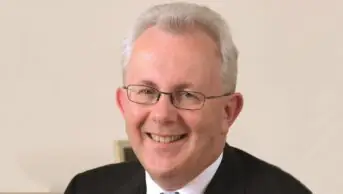The Council of the Royal Pharmaceutical Society has rejected a suggestion that bodies such as the Association of Pharmacy Technicians UK and the Academy of Pharmaceutical Sciences should be able to affiliate to the Society and receive paid services.
At a special Council meeting on 16 May, John Gentle proposed: “This Council believes that as soon as possible the Society should begin a process to enable it to recognise affiliate bodies whose members benefit from paid services agreed to be provided by the Society.” He said that the Society had been consulting widely with its members and others on the many aspects of the Government-proposed “body akin to a royal college”. One participant in the discussions had said that her organisation, like many others, had difficulty to committing to a concept of a royal college, because it did not know what it was committing to, and that the Council needed to put some proposals in place to give people a better idea of what they were, or were not, committing to.
Mr Gentle said that his motion did not commit the Council to any action other than to begin an investigation, but it did give an idea of a direction of travel. Various people — erroneously, in his view — had indicated that the Council and the Society had not been as inclusive as they might have been when forming policy.
There was a need for the Council to formalise its relationship with other bodies, and it should do so publicly. It did not have to wait for the formation of a royal college. Nothing stopped it from beginning to align itself with the function of a royal college now.
Andrew Gush, seconding the motion, said that bodies such as APTUK and the APS should be able to affiliate to the Society while retaining their unique identity and their ability to argue their own points of view. Affiliation would provide access to resources such as the library services, information department and educational material and the Society would benefit from increased revenues.
Bob Michell said that the Council had already welcomed a report that identified a large number of organisations that would like to work with the Society. But the first half of the motion suggested a problem with doing that and the second half seemed to exclude affiliation of bodies that did not benefit from paid services. He would therefore abstain.
Martin Astbury said that the motion was suggesting that the Society should make sure that it begins the process. Even if the process was already there, it should be made explicit. He supported the motion.
Peter Jones, chairman of the Welsh Pharmacy Board, said that his board’s unanimous view was that the Council should not set in train actions that could preclude any type or category of membership of a professional leadership body. To take a decision with undue haste was not in the interest of the public or the profession.
Brian Curwain said that he could not support the motion because it could be interpreted as saying that people other than pharmacists could only be on the edges. His view was that there were important roles for for pharmaceutical scientists, many of whom had higher academic qualifications than most Council members, and pharmacy technicians.
Stephen Denyer said that he applauded the motion’s intention but he had reservations about being restrictive to one type and form of engagement. It was premature, in that the Council should be looking at what affiliation might mean, what it brought to various organisations and the additional mechanisms that might be available.
Sid Dajani said that the motion was a no-brainer, since it simply wanted to start a proactive process ahead of its time.
Lorna Jacobs said that the motion related to the Society but could be seen as an attempt to tie the hands of a potential royal college.
Jonathan Buisson said that the motion was not about inclusion but about “members only, for now, for ever”, and that was not the position the Society needed to be in as it attempted to form the core of “a body akin to a royal college”. The Council was not in any position to decide what that body looks like.
Colin Ranshaw said that he had no problem with the first part of the motion because the Society needed to start identifying groups to talk to, but he had a problem with the issue of paid services, which could lead to a Catch 22 situation.
The President (Hemant Patel) said it would be helpful to separate what is being asked of the Society and what is being asked of the future proposed body. What he was hearing was confusing. The motion as written was about what the Society should do now.
Marcia Saunders said that the President was right to draw the distinction between the Society and a future royal college. The Society needed to be careful not to give the impression that it had made assumptions. The motion was seriously pre-emptive and would be misunderstood.
The Treasurer (John Jolley) said that he fully supported the principles of consultation with all sectors of pharmacy over the membership of a future royal college-type organisation. But the motion implied possible exclusion from such a future body for those not registered as practising pharmacists. If that were the case, then the professional body would be weaker because it needed representation from all sectors of pharmacy. For that reason, he opposed the motion.
Douglas Simpson said that his goal was a body capable of representing the views of pharmacists as pharmacists. Their interests overlapped, but were not identical with, those of others such as technicians. Technicians needed their own distinctive voice if they were to be heard in the debate about how the pharmacy profession should be organised. He supported any mechanism leading to a body is able to represent the views of pharmacists in a democratic and distinctive fashion.
John Hanlon said that the Society was composed of its members and, whatever the Council decided, at some stage it would have to ask the members to decide what they wanted. An acknowledgement of that would be a good message from the Council meeting. The members should be in control of the future of the Society. That was the position of the Charter. The members were king. The Council could discuss the issues but in the end the members had to decide.
Sylvia Hikins said that some of what had been said had scared her a little and could persuade people to agree with accusations that the Society is unable to take a collaborative approach to leadership. The motion should not be passed.
Professor Michell said that the motion assumed that there was some obstruction in the way of affiliation at present. Was that the case?
The President said that, as long as the Charter objectives were honoured, there were no problems with affiliation.
The Secretary and Registrar said that any proposal would have to be considered and investigated because the Society had no definition of “affiliate”.
The President then put the motion to a vote. There were 11 votes for the motion and 11 votes against.
Those voting for the motion were Martin Astbury, David Carter, Sultan Dajani, Dorothy Drury, Davan Eustace, John Gentle, Andrew Gush, Graham Phillips, Douglas Simpson, David Thomson and Stephen Wells. Those voting against were the Treasurer, Jonathan Buisson, Brian Curwain, Stephen Denyer, Phillida Entwistle, Sylvia Hikins, Corinne Hunt, Lorna Jacobs, Alan Kershaw, Lesley Morgan and Marcia Saunders. Abstentions were recorded for the Vice-Chairman (Gerald Alexander), John Hanlon, Bob Michell and Colin Ranshaw. (Seema Agha, Ray Jobling and Michael Schofield were absent.)
The President said that because there was a tie, he would use his casting vote in favour of the status quo. Having said that, he would concentrate on the spirit of the motion because it was important for the Society to be seen to be engaging with all sectors of pharmacy and those outside. The process, begun with the meetings on 9 March and 30 April, clearly demonstrated the Society’s will to engage with all the parties and discussions with all those bodies would continue.
Professor Denyer said that the spirit of the motion was to ensure that the Society had the right set of mechanisms available to be inclusive. He did not think anyone had detracted from that. Procedures were in place to look at all the mechanisms and he was reassured that those proceedings were started.


